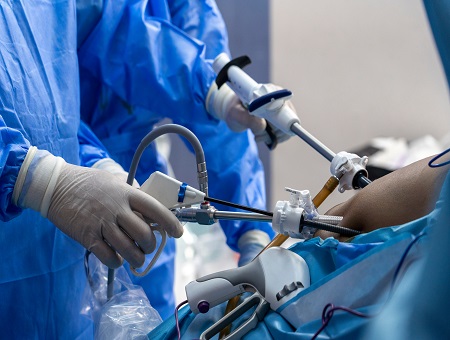6 Things You Should Know About Gastric Sleeve
 Obesity is a growing health concern that affects millions of people globally. And Sydney, Australia is one of the many cities grappling with this complex issue. In fact, nearly two-thirds, or 65.8%, of Australian adults are classified as overweight or obese.
Obesity is a growing health concern that affects millions of people globally. And Sydney, Australia is one of the many cities grappling with this complex issue. In fact, nearly two-thirds, or 65.8%, of Australian adults are classified as overweight or obese.
Many people feel like they’ve tried everything to lose weight—a balanced diet, medications, exercise plans—but nothing seems to work. That’s why medical specialists developed evidence-based interventions to address this health issue. One such solution is gastric sleeve surgery.
Let’s take a closer look at the things you should know about this advanced surgical treatment.
1. Overview of Gastric Sleeve Surgery
Gastric sleeve surgery, also known as sleeve gastrectomy, has become one of the most popular weight loss surgery options due to its effectiveness.
This type of bariatric surgery removes approximately 80% of the stomach. The remaining portion forms a narrow tube, restricting food intake and reducing hunger hormones. Unlike other types of weight loss procedures, gastric sleeve doesn’t involve rerouting or bypassing the intestines.
The surgery is performed laparoscopically, meaning the doctor makes small cuts in the abdomen. Through these incisions, they insert specialized tools and a camera to guide the procedure. This approach usually leads to faster recovery and minimal scarring compared to traditional open surgery.
2. Prospective Candidates for Surgery
Not everyone qualifies for sleeve gastrectomy surgery. Most clinics or private hospitals in Sydney follow certain criteria to determine eligibility. This includes:
* A body mass index (BMI) of 40 or higher (considered severely obese)
* A BMI between 35 and 40 accompanied by obesity-related health conditions such as type 2 diabetes, high blood pressure, heart disease, or sleep apnea
* Psychological readiness to make permanent lifestyle changes
* A history of previous weight loss operations that didn’t lead to sustained results
The last point is practically critical. Some people may have undergone procedures like lap banding or other bariatric surgeries. However, they didn’t get the results they were expecting. Perhaps the weight regained, or the side effects were too much to deal with.
In cases like these, revision surgery might be a helpful next step. This type of weight loss operation can offer a second chance. It’s a safer, more effective solution for those who didn’t see lasting success the first time.
3. Expectations Before the Operation
This factor is probably at the top of your mind—understandably so. Undergoing surgery is a big decision, and knowing what to expect can ease a lot of stress.
Before your surgery, you’ll go through a rigorous assessment by a bariatric physician, a dietitian, and sometimes a psychologist. They’ll evaluate your physical and mental health as well as eating habits. This comprehensive approach ensures patients like you are suitable candidates for the procedure.
Surgeons may also advise following a pre-operative diet. This is often a low-calorie, high-protein plan designed to shrink the liver and make the operation more efficient.
4. Recovery and Healing Process
Recovery from sleeve gastrectomy takes time and patience. But as mentioned, the healing process is often quicker and less painful since it’s done laparoscopically.
Most patients stay in the hospital for one to two days after the operation. You’ll likely feel tired and sore in the first week, but this generally improves quickly. You’ll start with a liquid diet, then gradually move to soft foods. Eventually, you’ll be able to eat solid foods, following the guidance of your dietitian.
Full recovery can take a few weeks, but many patients return to normal routines within a month. Just remember that adjusting to lifestyle changes is part of the weight loss journey, too.
5. Potential Complications and Risks
Gastric sleeve surgery is generally effective, but like any surgical procedure, it does come with some risks. It’s important to be aware of potential issues that could arise, such as:
* Bleeding or infection at incision sites
* Leakage along the staple line where the stomach is divided
* Blood clots in legs or lungs
* Stricture (narrowing) of the stomach sleeve
* Gastroesophageal reflux disease (GERD)
* Vitamin and mineral deficiencies
* Gallstones due to rapid weight loss
Complication rates, especially in Sydney, remain low, with serious problems occurring in less than 2% of cases. Most can be managed effectively when identified early. This highlights the importance of attending all scheduled appointments.
6. Average Cost Structure
Cost is a major factor for many people considering weight loss surgery. Not all healthcare facilities have the same rates and services. Their pricing can depend on several aspects, including:
* Surgeon’s fees
* Hospital charges and length of stay
* Pre-operative assessments
* Post-operative care
Some private clinics include everything in one package, from consultations to post-surgery follow-ups. Others charge separately for each service, which can affect the overall calculation. Meanwhile, public hospitals are usually more affordable, but wait times tend to be longer. Also, out-of-pocket expenses can still apply here, particularly for pre-surgical appointments.
If you have health insurance, check what’s included in your policy and whether any waiting periods apply. Some plans may cover part of the surgery if certain medical conditions are met.
Wrapping Up
Gastric sleeve surgery offers a viable solution for those struggling with severe obesity when other weight loss methods have failed. The procedure has helped many people improve their overall quality of life.
Keep in mind that there’s much to weigh before proceeding. Take time to balance the potential benefits against the risks. That said, it’s essential to consult with a qualified medical expert. They can answer your questions and help you decide if this approach aligns with your health goals.
With the right preparation and support, gastric sleeve surgery can be a valuable step towards lasting change.
